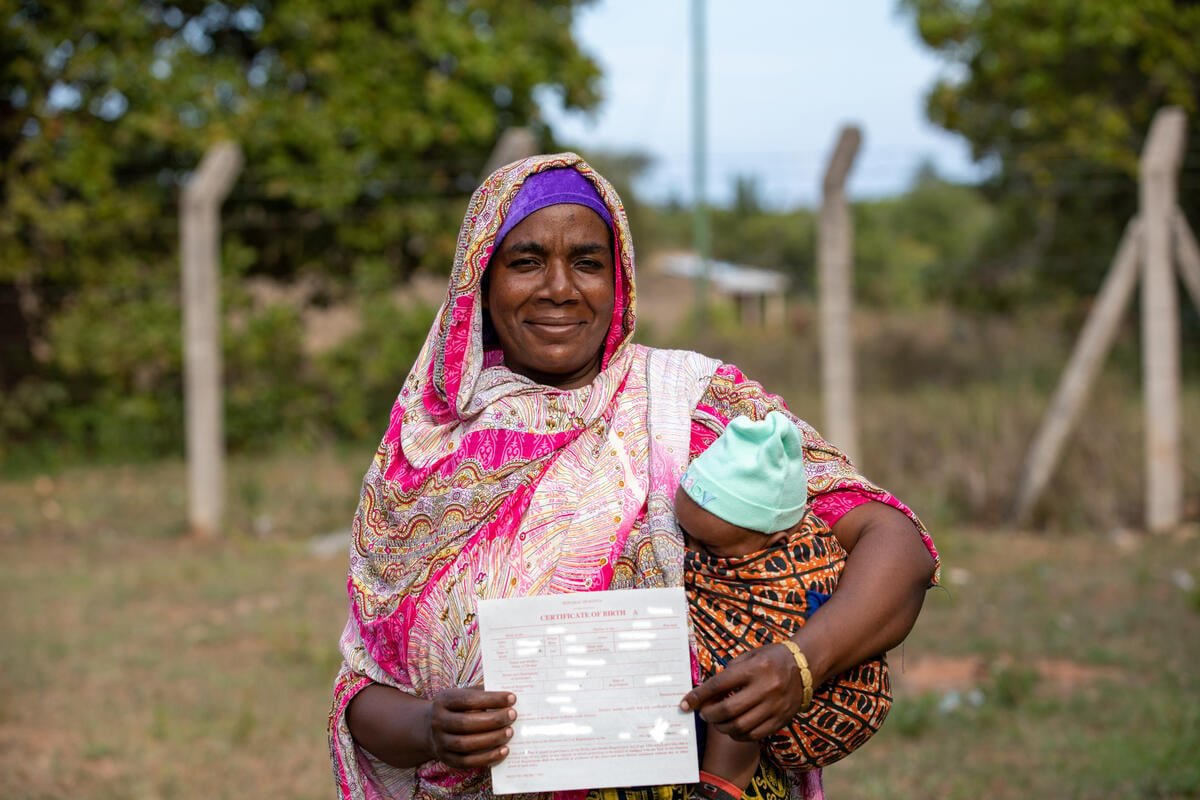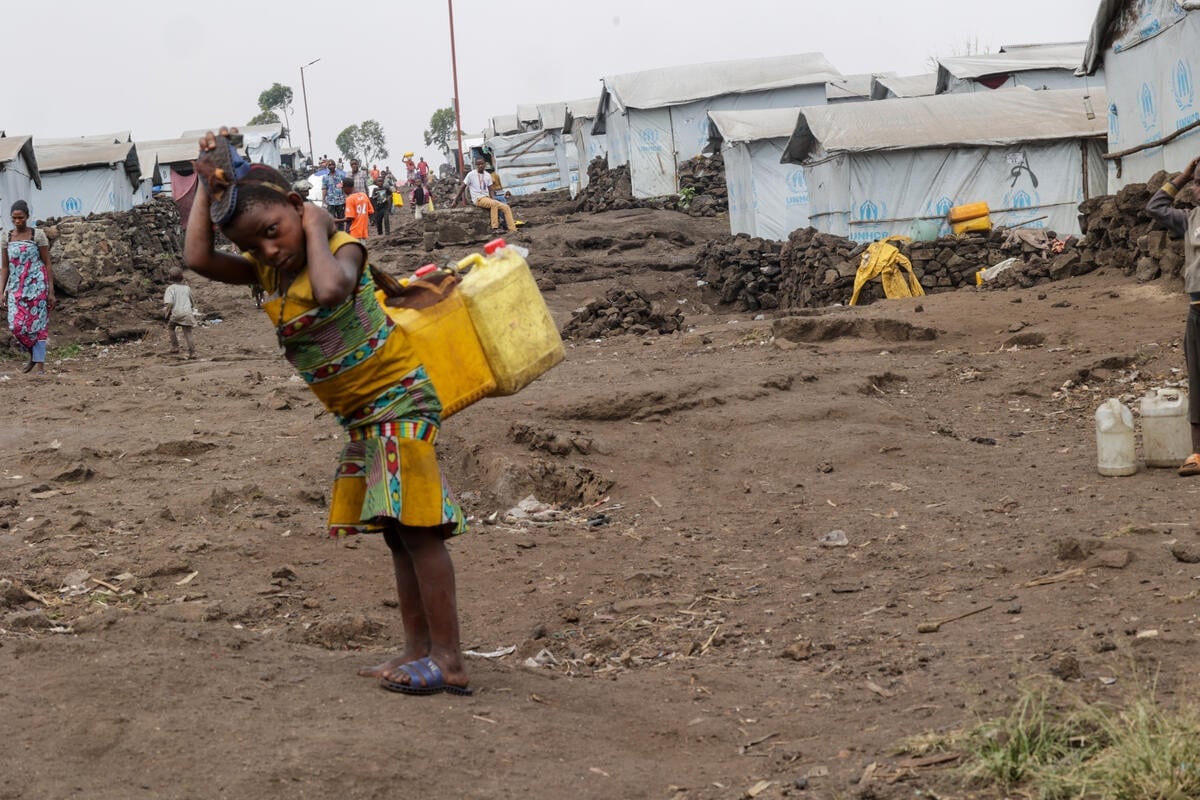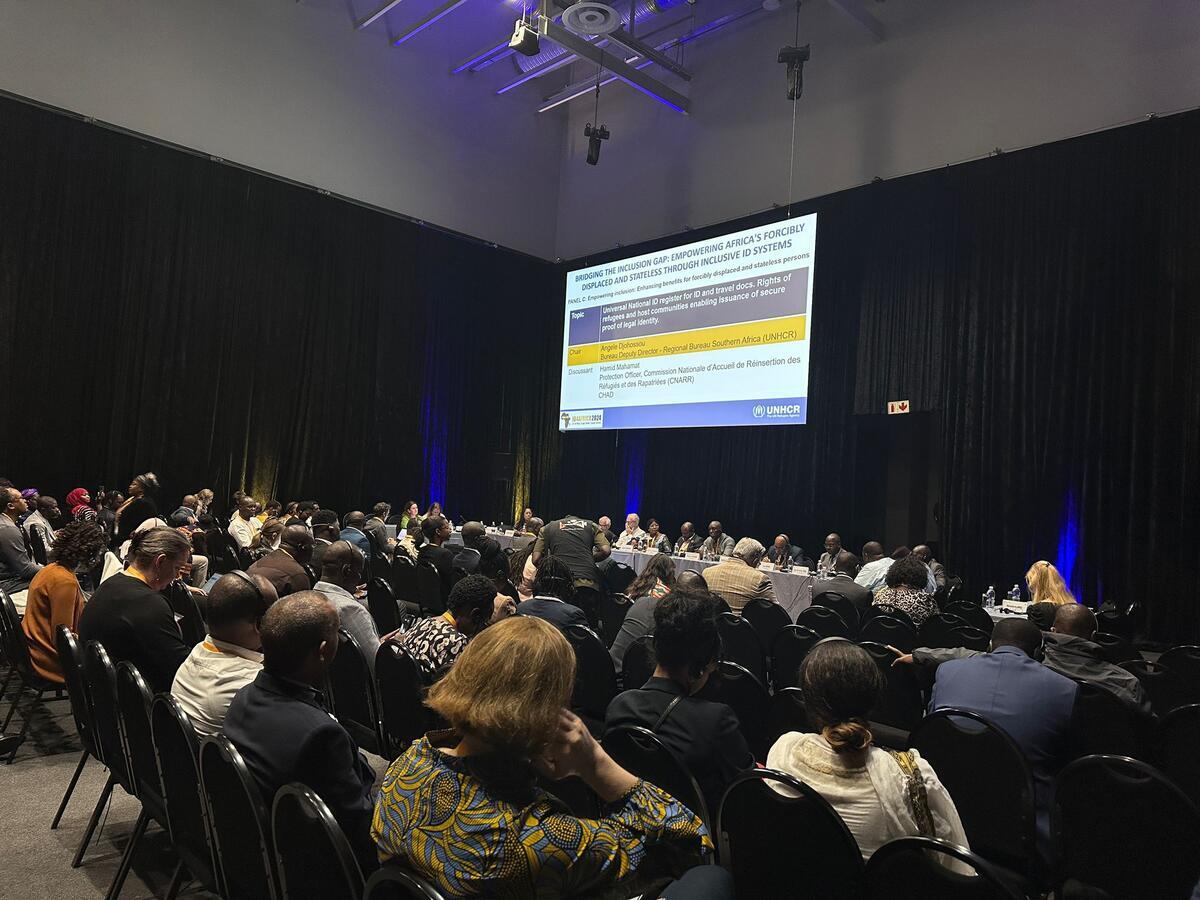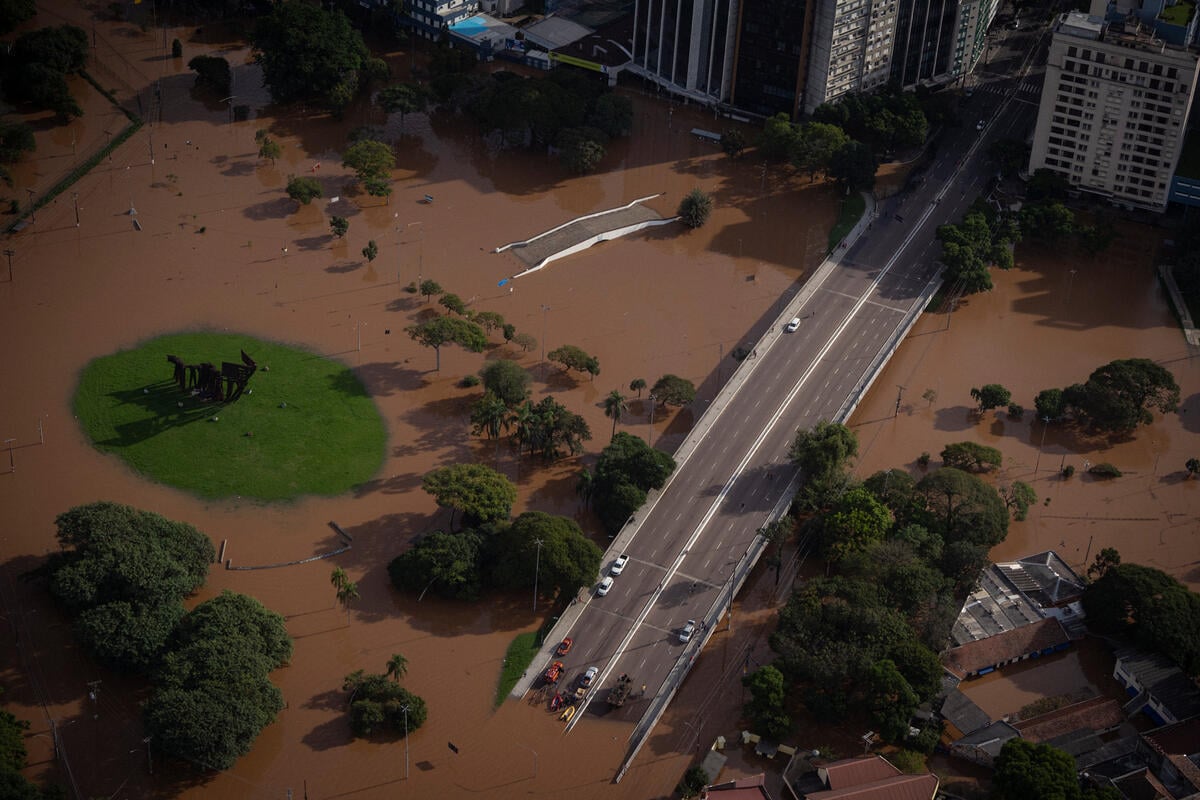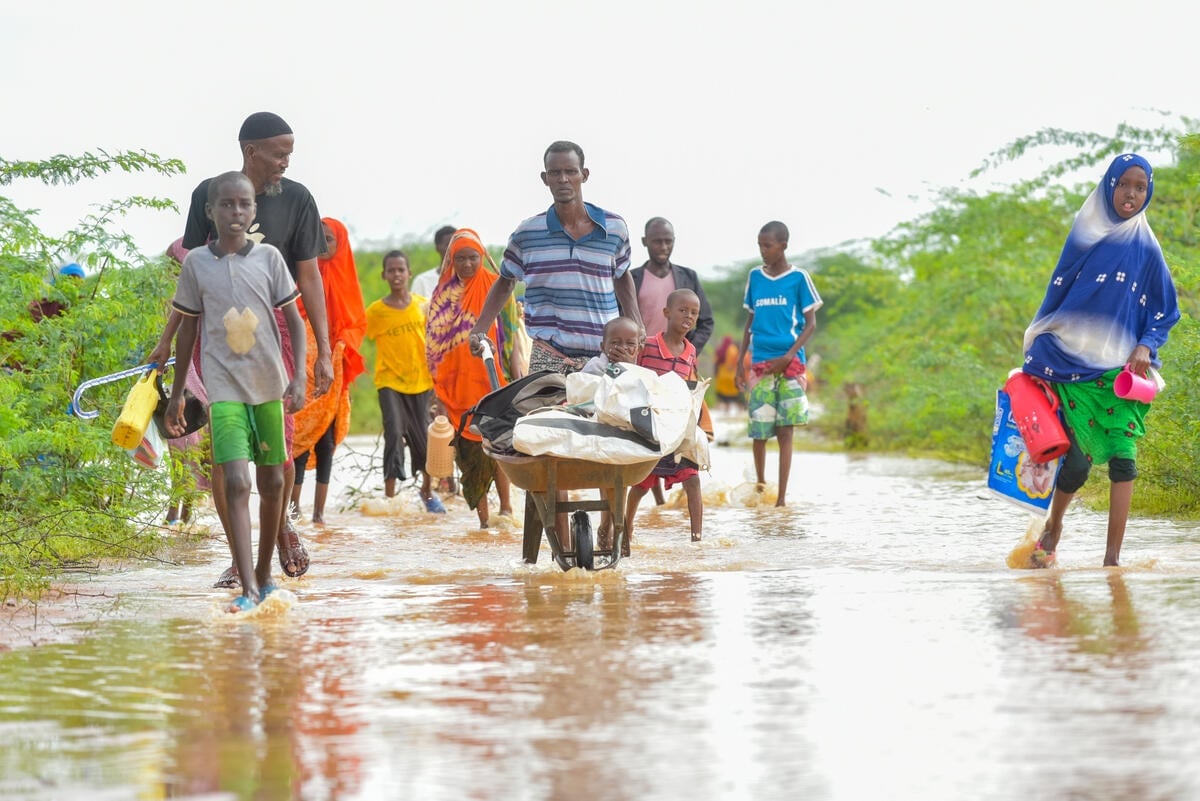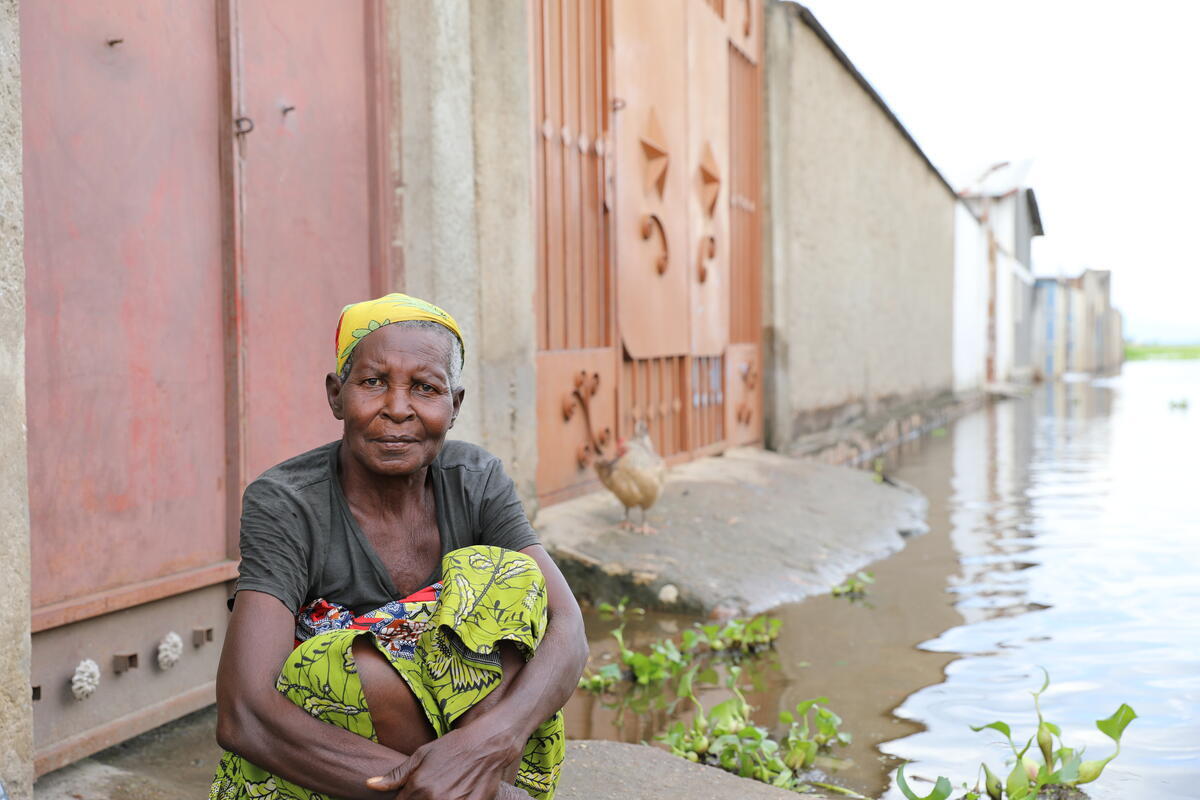Burundi: UNHCR concern over Songore transit centre conditions and government methods
Burundi: UNHCR concern over Songore transit centre conditions and government methods
Although UNHCR has been pressing for the relocation of thousands of Rwandan asylum seekers in Burundi's border areas to two inland transit centres, we are very concerned at the manner in which Burundian authorities are now consolidating all of the Rwandans in one ill-equipped transit centre at Songore, in northern Burundi.
Over the weekend, thousands of Rwandans were forced to leave three sites along the Burundi/Rwanda border after they were dismantled by armed forces. UNHCR was not informed of this action in advance. An undetermined number of asylum seekers returned to Rwanda, while thousands of others are walking some 50 km to Songore. On Saturday, the Burundian authorities also demanded the immediate closure and transfer to Songore of 1,700 Rwandans sheltering at UNHCR's second transit centre, Cankuzo, in the east of the country. UNHCR was simply told the camp would be closed, so we decided we would at least provide safe transport to Songore. The Rwandan asylum seekers at the site are now being transferred to Songore. A first convoy of 572 people was organised and the relocation will continue until Cankuzo is empty.
Songore, which has the current capacity to shelter 800 refugees and was already over populated with 1,000 residents before the transfers even started, will now be severely overburdened with this new influx. Some 1,500 asylum seekers have already arrived at the site since Saturday. We are extremely concerned at this new development and the precarious living situation of the new arrivals at Songore.
The asylum seekers initially fled to Burundi in early April citing fears over the "gacaca" tribunals looking into the Rwandan genocide, but also citing threats of intimidation, persecution and rumours of revenge as reasons for leaving the country.
Last week, the Burundian and Rwandan authorities agreed that the estimated 10,000 Rwandan asylum seekers should be grouped at the Songore site to make it easier for them to ensure their security and to conduct their information campaigns to try to convince the asylum seekers to return home. So far, the campaign which started in early May, has had limited success, with few asylum seekers wanting to return.
Over the weekend, for the second time in a month, authorities dismantled three border sites where over 5,500 asylum seekers had been living in difficult conditions - they had just been provided with temporary shelters, latrines and water. No transportation was provided and many of the Rwandans are now arriving on foot at Songore. UNHCR only has the logistical means to pick up the most vulnerable asylum seekers to transport them to the site.
We have raised our concerns several times during the last month about the living conditions of the asylum seekers and reports that they had suffered intimidation by the Burundian army and Rwandan authorities to force them to go back to Rwanda. Although UNHCR has been pressing for the relocation of the asylum seekers to the two inland transit centres (Cankuzo and Songore) for security and assistance reasons, the way this is being done causes us concern. Songore is ill prepared to receive large numbers of people and those converging there now are once again in very precarious conditions. They will initially have to live in the open, with a lack of basic sanitation facilities and limited water supplies.
In mid-April, UNHCR started transferring the Rwandans to the inland site of Cankuzo, in line with our policy to move people as quickly as possible from the border to safer locations. However, less than a week after the transfers began, they were halted by the Burundian authorities.
Meanwhile, UNHCR is working rapidly to extend Songore to a capacity of 6,000, but it will take between two and three weeks before the asylum seekers can be properly sheltered.
Over 1,500 asylum seekers from Rwanda have also arrived in Uganda.


